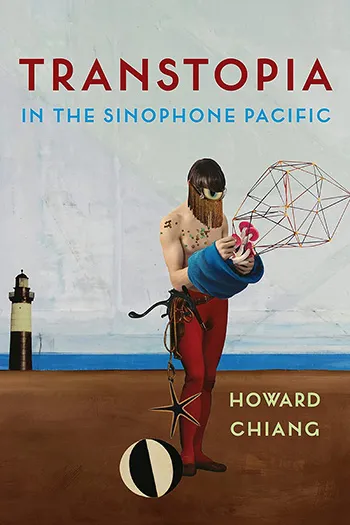
Transtopia in the Sinophone Pacific marks Howard Chiang's third and most recent attempt to bridge the scholarly gap between Sinophone (meaning "Chinese-speaking") and Queer studies. Despite sharing similarities in subject matter to his previous written works, this iteration sees Chiang set out upon an even more ambitious and all-encompassing project.
By employing his own methodology of "transtopia," the author meticulously posits the Sinophone Pacific as a key region of academic and geopolitical significance for global LGBT studies. "Both Hong Kong and Taiwan, like sexual and gender variance, have occupied a peripheral space in mainstream historical inquiry. They are too small, too invisible, and thus too unimportant," he writes.
Chiang laments on how the academic circles and Queer communities of Western countries (primarily the US) collectively talk about and understand other Queer identities globally. In his view, dominant "Western" narratives of transness and Queer struggle have unconsciously been assumed as the "default" way of understanding all instances of sexual and gender variance across different times, locations, and cultures.
He fleshes this point out primarily in the second chapter, titled "Stonewall Aside: Why Queer Theory Needs Sinophone Studies." He heavily cautions against using localized events, like the Stonewall Riots, to create universalized narratives of Queer and Trans identity, because often they aren't entirely relevant or helpful in understanding Queer communities outside of that context.
The author's wariness of the dangers posed by dominant, hegemonic cultural narratives of queerness and transness is also how he draws strong connections to Chinese and Sinophone studies. To Chiang, Taiwan and Hong Kong both hold unique marginalized perspectives within the dominant cultural discourse around "Chineseness" - offering important parallels and insights into how we can historically understand the formulations of non-Western Queer and Trans identities.
To demonstrate these parallels, Chiang highlights the tongzhi movement (同志運動) of the 1990s and 2000s as a key example. The term tongzhi, originally meaning "comrade" or more literally "same ideal" in Chinese, was first reappropriated and queered by communities in the Sinophone communities of Taiwan and Hong Kong before being imported back into Mainland China by Queer activists. Chiang notes that the tongzhi movement made numerous significant gains, such as the 2004 Gender Equity Education Act in Taiwan. He uses the impact of this movement to illustrate how these communities have historically been catalysts of LGBT identity formation and political struggle in the region.
The concept of transtopia
Chiang further discusses "transtopia'' as a theoretical framework that can potentially resolve the current roadblocks he identifies in Queer scholarship. His concept of transtopia adopts a Foucauldian methodology to analyze how societal discourse changes collective understandings of sexual and gender-variant people over time.
Instead of the linear, "grand" historical narrative often portrayed by Western scholarship, transtopia argues that there is a global web of different discursive center points loosely (or closely) affiliated, influenced, and connected to one another evolving over time. To Chiang, the dominant Transgender discourse in Western countries is neither special nor irrelevant; rather it is merely one among many others around the world that we can learn from historically.
Chiang at this point in the book even says outright that he prefers to identify himself with the term "transtopian" over "transgender," because his own unique experiences with gender identity growing up in Taiwan don't quite line up with dominant, Western notions of "transness." Similar motivations are what also inform his decision to use the term "Sinophone" instead of "Chinese" when referring to Chinese-speaking communities that exist outside of, but still sit in the overarching shadow of, the politically and culturally dominant Chinese mainland.
To demonstrate his transtopian methodology in practice, Chiang spends the latter half of the book investigating many focal points, including Taiwanese Renyao (人妖) history, the 2013 Hong Kong anonymous Transgender woman/cisgender man marriage case, and the 1932 Hangzhou case of Tao Sijin's murder by her lover Liu Mengying, among others.
Chiang notes that transtopia would also be applicable as a tool to analyze circumstances outside of the purview of the book, with the intention of this work being a launching point for others to investigate their own local instances of Queer or Trans history and political struggle.
Overall, Transtopia in the Sinophone Pacific thoroughly accomplishes what it sets out to do and proves through its potential and rigor to be a seminal work in both Queer and Sinophone studies.

